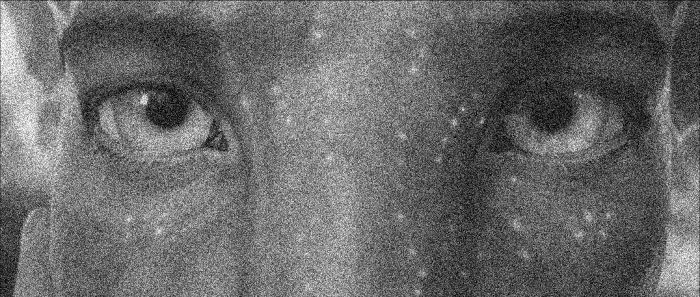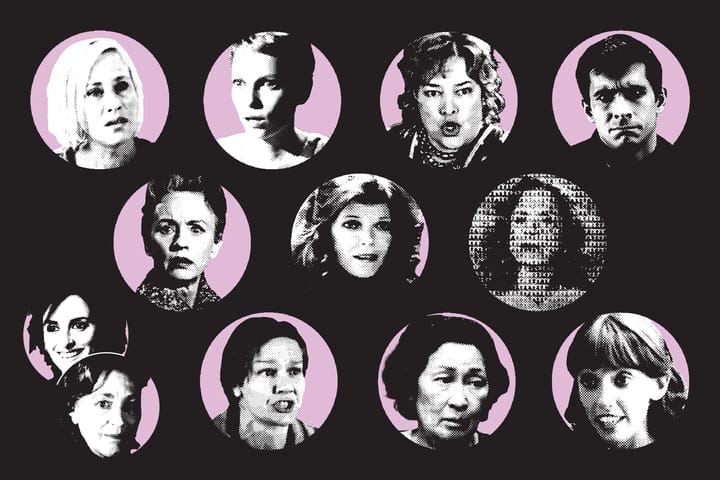Death Drive in Blue
Are you sure you weren’t rooting for the Americans all along?

In Ursula K. Le Guin’s short story The Pathways of Desire, a team of anthropologists lands on the beautiful tropical planet of Yirdo, thirty-one light years from Earth, to meet its inhabitants, the Ndif. Like their planet, the Ndif are beautiful. They have golden hair and smooth skin and tight tender bodies, barely covered by their pandsu-leaf clothes. They live in small villages in the depths of the jungle, where the young men spend their days hunting the bountiful poro, and the young women spend their days plucking bountiful fruit from the lamaba trees, and everyone spends their evenings having lots of bountiful and carefree and totally unashamed sex. The Ndif live wonderful, enviable lives. But they also, as our anthropologists discover, don’t really exist.
Le Guin’s idyllic primitives don’t just live without all the tedious dead weight of our advanced technological civilization: the mortgage, the commute, the email job, the pile of books unread, the life growing longer, unlived. They live without anything. One of the anthropologists snaps: “They’re boring! No kinship systems, no social structure except stupid age-grading and detestable male dominance, no real skills, no arts—lousy carved spoons, all right, like a Hawaiian tourist trap—no ideas!” Some of them have a vague notion of a creator deity called Bik-Kop-Man who created the universe out of his thoughts, but that’s about the limit of their culture. They don’t even have a language. Slowly, with mounting horror, the visitors discover that every word the Ndif speak is just a garbled version of English. “Oe: go. Tunu: return. Itunu: I return; utunu: you return; tunusi: he returns. Padu, to hit, strike. Fatu, to build, make—facere, factus—factory.”
The god of the Ndif, the one who created their universe out of thoughts, really does exist. His name is Bill Kopfman, and he lives somewhere in the flat center of America. “A fifteen-year-old boy, with glasses, probably also acne and weak ankles.” He is not happy with his world, the technological society that produces endless desires only to frustrate them. So somewhere in his stash of slightly damp pubescent notebooks, Bill Kopfman has drawn his maps of the planet of Yirdo, which exists only to express a fantastic opposite of his own daily life. One in which all his fantasies are instantly fulfilled. Where all the girls are tanned and naked and available, and he can be the great hunter facing down all his rivals in a knife fight to the death. He didn’t give his creations any actual culture or society because that wouldn’t mean anything for his suburban dream of omnipotence. “He doesn’t understand desire. He is entirely caught in it, bound by it, he sees and knows nothing but his own immense desire. And so he makes the world.”
On an entirely unrelated note, the first and fourth highest-grossing films in cinematic history are Avatar and Avatar: The Way of Water.
When the first Avatar was released, it was followed by a wave of what’s been called “Post-Avatar Depression Syndrome.” Emerging out of the synthetic wonderland of the cinema into the drab reality of twenty-first century capitalism, some viewers feel bereft. They want to go back, to live forever in the lush jungles of Pandora. They want to be big blue cat-people. They want to fly on the backs of giant alien lizards. They want to live in perfect balance with nature. Online, some of them discussed suicide. “If I do it,” one hoped, “I will be rebirthed in a world similar to Pandora and the everything is the same as in Avatar.”
But what would it actually be like to live on Pandora? Again, the Na’vi are defined almost entirely by what they lack. No cars, jobs, taxes, capitalism: fine. But also, just like the Ndif, no art, no real music, not even much body adornment; no culture whatsoever. Next to any human society that has ever existed—next to any Neanderthal society—they are impossibly impoverished. The Na’vi do have a vague religion, revolving around a universal sentient force called Eywa that permeates their entire planet and keeps its natural systems in balance—but since, like Bik-Kop-Man, this entity turns out to actually exist, it hardly counts. All the Na’vi are essentially just nodes in Eywa’s planet-sized consciousness: they are themselves barely sentient, barely more than animals. They do not live. Dying and being reborn on Pandora wouldn’t be much different from simply dying, full stop: returning to the great blank wholeness and totality and non-differentiation of death.
There is nothing wrong with fantasy, in and of itself; and as I’ve argued previously, cinema enjoys a privileged relation to the fantasies that make social life possible. It’s good that Hollywood is capable of representing our desires on the screen again. My point is not that the Avatar films are bad because they have failed to be a long, dense textbook on anthropology. (I might prefer that, but it’s probably for the best that I’m in the minority here.) But as fantasies go, this one is not the best we could hope for.
Responding to the first Avatar film, Mark Fisher wrote that it was only significant in that it “highlights the disavowal that is constitutive of late capitalist subjectivity, even as it shows how this disavowal is undercut. We can only play at being inner primitives by virtue of cinematic proto-VR technology whose very existence presupposes the destruction of the organic idyll of Pandora.” It’s simply a negative of capitalist modernity; what it really shows is how badly we’ve failed to think what Fisher regards as our real alternative: modernity, but without capitalism.
(Since the original Avatar was released in 2009, the fourth quadrant has been filled in: some of the leading intellectual currents on the Right now aim for a kind of capitalism without modernity. The commodity-form is preserved, with all the domination that entails, but without history or liberation or democracy or the political; all smothered in a constant appeal to nature, and a vision of human society as nothing more than an expression of natural forces. You will live in the cabin. You will slonk the eggs.)
But I’d go further than Fisher. Avatar is not just a disavowal, and the people who became suicidally depressed after watching it had it exactly right. The film is two hours and forty-two minutes of pure, uncut death drive. You are plugged in to the death drive of capitalism in general: you watch as it feverishly imagines its own extinction, cutting away at all the conditions that sustain its existence. In this sense, the climate crisis and these movies that supposedly critique it are really just expressions of one and the same thing.
Strangely, though, since 2009 the Avatar films have seen a bizarre leftist reappraisal. We’re no longer seeing these culture-commodities as a symptom; we’re not even supposed to just accept them as dumb entertainments that aren’t worth reading into too much (which would be fair enough). Instead, these are supposed to be genuine Brechtian radical art. The chief argument here is that James Cameron has produced a work of serious anti-imperialist agitprop. Audiences in the imperial core watch the US military being torn apart by blue-skinned indigenes, and they love it. We see our society humbled, and we applaud.
Are you sure? Are you absolutely sure you weren’t accidentally rooting for the Americans all along?
In the original Avatar, an American Marine called Jake Sully is sent to infiltrate Na’vi society in a synthetic alien body; he ends up going native, abandoning all his cultural ties to the sick, dying society of Earth that killed its mother. He marries the daughter of a local chief, and leads a revolt against the human intruders. But in the recent sequel, we get to meet his kids. And like the Ndif, these kids speak English. In a very early scene, Sully watches his children playing. “It took a few years to get the language through my thick skull,” he comments in a voiceover. “But now when I hear it, it might as well be English.” From then on, English is what all the Na’vi speak, unsubtitled. When the kids fight, they say things like “I hate you times infinity, penis-face.” When they get older and turn into deeply annoying teens, they call each other “bro.” They call their father “sir.” He calls them the Sullys. “Sullys stick together,” he says. He makes them repeat it.
I don’t think you have to be a family abolitionist to note that this is deeply, deeply strange. This is a man who’s supposedly severed all ties to modernity—but here he is, trying to maintain the bourgeois nuclear family unit on an alien moon. Shouldn’t his kids be enmeshed in some kind of complex kinship network? Shouldn’t their names signify their moiety or clan? Did the society that adopted him not insist that his children should be raised their way?
But the Na’vi, of course, do not have any complex kinship networks; the only vestige of any meaningful social totality is the family. Two parents plus kids. Does that sound familiar? The Na’vi are Americans. They speak English. They pose for photos. They’re spiritual but not religious. We can no longer accommodate even negative images. Our society tries to conjure a fantasy of its own annihilation, and all it can come up with is itself.
■
Sam Kriss is a writer and dilettante surviving in London.



